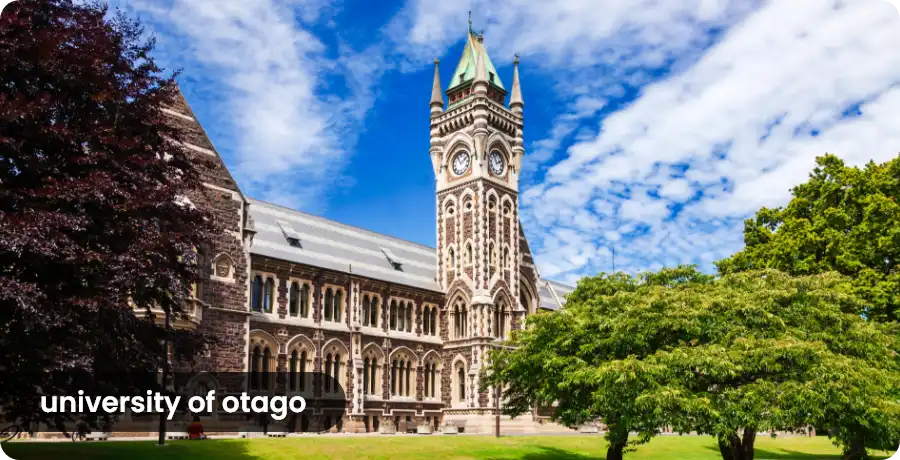Highlights of Microbiology Courses in New Zealand
With environmental issues gaining more importance with every passing day, microbiology will surely be one of the most demanded fields of study in the future. Multiple Universities offer several courses in this domain to study in New Zealand.
All these courses offer a comprehensive idea and research aptitude that helps the students pursue a rewarding career in this field. Even though New Zealand has numerous world-class institutions for pursuing UG or PG courses in microbiology, the University of Otago and the University of Auckland are the most sought-after by international students.
Why Study Microbiology Courses in New Zealand?
There can be scores of reasons for studying in New Zealand. For International students, this country remains a frequently opted-for alternative. To begin with, New Zealand’s stable political environment is one of the primary reasons foreign students find this country safe and ideal to live in.
Moreover, New Zealand has some of the best universities in the world that offer a global standard of education. The institutions also provide various courses in a wide variety of subject domains. Therefore, choosing a course here becomes easier.
New Zealand is a developed nation with a flourishing job market. Therefore, international students aspiring to settle in New Zealand can find ample options to start their careers there.
Types of Microbiology Courses in New Zealand
Multiple Universities in New Zealand offer several courses in Microbiology. World-renowned institutions like the University of Auckland, Massey University, etc., offer many courses in Microbiology to international students as well.
- Bachelor’s in Microbiology
- Master’s of Microbiology
- M.Sc in Science
- Master’s in Molecular Biology
- Master’s in Biochemistry
- M. Sc in Conservation Biology
- M.Sc in Molecular Biotechnology
- M.Sc in Immunity & Infection
- M. Sc in Food Innovation
List of Universities Offering Microbiology Courses in New Zealand
New Zealand has more than a dozen reputed and world-recognized Universities. Some institutions, like the University of Auckland, rank within the top 100 universities in the world. Here is a list of Universities in New Zealand that offer world-class education.
- Massey University
- University of Auckland
- University of Otago
- Victoria University Of Wellington
- University of Waikato
- Lincoln University
- University of Canterbury
Admission Process
The admission process for international students remains a little lengthy and involves a lot of documents and criteria. Here is how you should proceed.
- First, find the particular Microbiology course you want to pursue. Every University has multiple courses in this domain.
- Visit the official websites of the Universities where you wish to apply.
- Once the admission process begins, students can apply online through the university’s portal.
- The list of selected candidates will be published on the official website only.
- If you get selected, prepare for a Visa application.
Eligibility Criteria
To be admitted to any University in New Zealand, international students must fulfill a few eligibility parameters.
- Microbiology courses can be at the UG or PG levels in New Zealand. For UG admission, students must have high grades in the 10+2 examination. Also, they must have had biology and chemistry in their high school studies. For PG admission, high grades in the UG degree are necessary. Students from the Biosciences field can apply for microbiology courses.
- Some Universities also ask for English Language Proficiency test scores. For IELTS, 6 remains the minimum requirement, and 95 is the lowest accepted score for TOEFL.
- Some Universities also ask for LORs Sops or both for PG and Doctoral degrees.
Documents Required
Here is a list of the common documents that almost every University needs for international student admission. However, you should always check the institution's official website to be more accurate.
- Grades of previous examinations in English
- Copies of qualifications attained.
- English Language Proficiency proof (IELTS/TOEFL/PTE)
- A Copy Of Your Passport
- A Passport-Size photograph
- Your updated resume
- Application charges payment proof
Proficiency Test
Even though an English proficiency score might not be necessary for some courses, some might require it. You can submit IELTS or TOEFL scores if your course needs proof of language proficiency.
A score between 6 and 6.5 is generally adequate for IELTS, and for TOEFL, the score should be 95. For PTE, students must have at least 64.
Visa Process
After submitting the application form online, the University will publish the list of selected candidates within a month. You will also receive an acceptance letter if your name is on the list. This is when you should start the visa process.
- Pick the student Visa option online
- Apply for a student visa using your passport
- Transfer the Visa processing fee
- Attach the confirmation letter in addition to that
- Accommodation confirmation is also necessary
- Submit the source of Income and bank statement
Cost of Microbiology Courses in New Zealand
The cost of pursuing a course in Microbiology can be different for different institutions. However, the following is a rough idea of how much fee an international student might have to pay for a Microbiology course in New Zealand.
1. Tuition Fees
The tuition fee amount will depend on the university and the course chosen. However, here is an idea about the tuition fees.
- Bachelor’s Degree: NZD 380000 - 43000
- Master’s Degree: NZD 45000 - 55000
2. Cost of Living
Living in New Zealand is not extremely expensive.
- Accommodation: NZD 800–NZD 950 every month
- Utilities: NZD 200 per week
- Food: NZD 200 to NZD 500 per week
- Transport: NZD 10 to NZD 12
Scholarships to Study Microbiology Programs in New Zealand
Studying microbiology in New Zealand can be more accessible and affordable with a scholarship. The two primary types of scholarships that international students should apply to are here.
- Government Scholarships: The government of New Zealand provides international students with scholarships based on merit. This one covers the entire tuition fee and 5000 NZD for transportation.
- University Scholarships: International students might also get scholarships offered by the University they have applied to. This scholarship might cover the tuition fee entirely or partially.
Job Opportunities on Completing Microbiology Courses in New Zealand
New Zealand is a country with excellent economic opportunities. The medical research domain of the country is gaining more significance these days. After completing a microbiology course, the students can easily get well-paid jobs in New Zealand or any other country.
FAQs
1. When should I apply to a New Zealand university for microbiology courses?
New Zealand Universities generally open the admission process in November/December. Check the university's website carefully to find out the exact date.
2. Is M.Sc in Microbiology enough to become a microbiologist in New Zealand?
Along with an M.Sc in Microbiology, you will also need an M.Sc in Immunity and Infection to become a microbiologist.
3. Which part of New Zealand is colder?
The southern part of the island is colder.
4. How long do I have to wait for selection confirmation?
The list of selected candidates comes out within 4 weeks of the last submission date.
5. Is a degree in Microbiology from New Zealand University worth it?
Yes. A degree in microbiology from a top-ranked university in New Zealand can help you build your career.






.png)

.webp)



